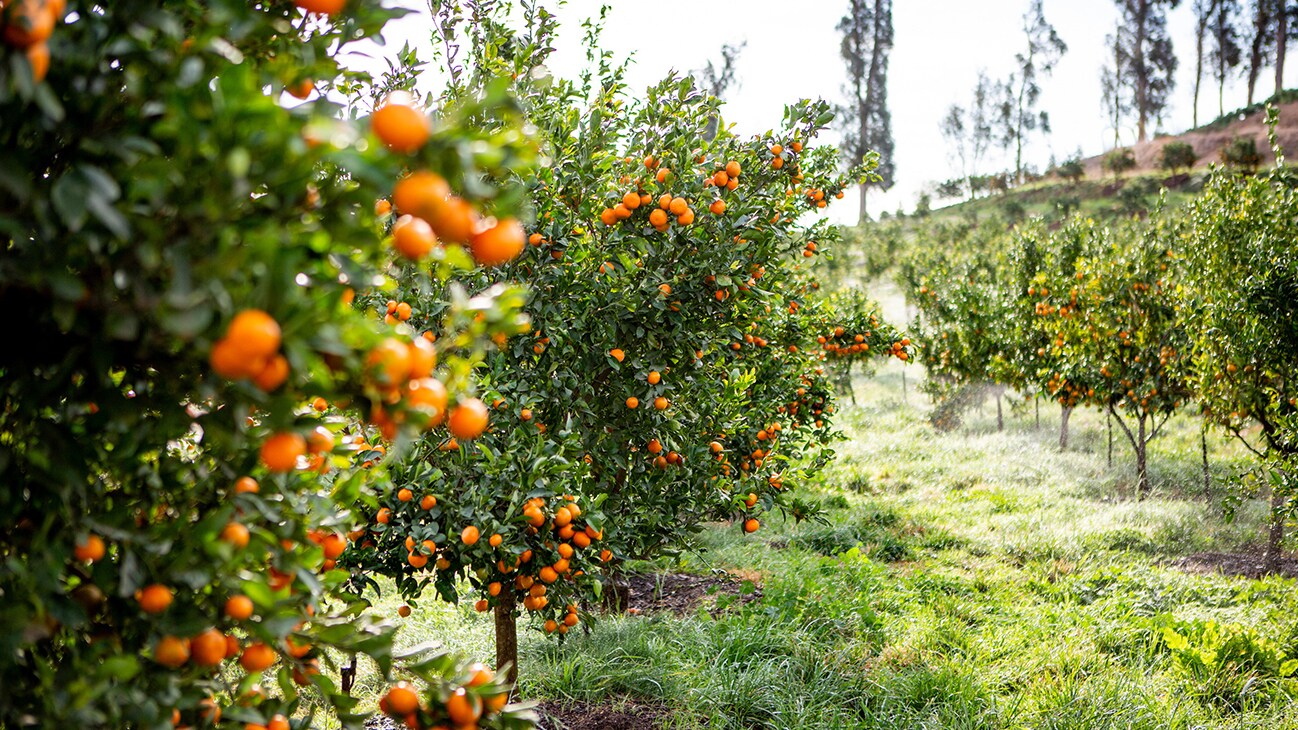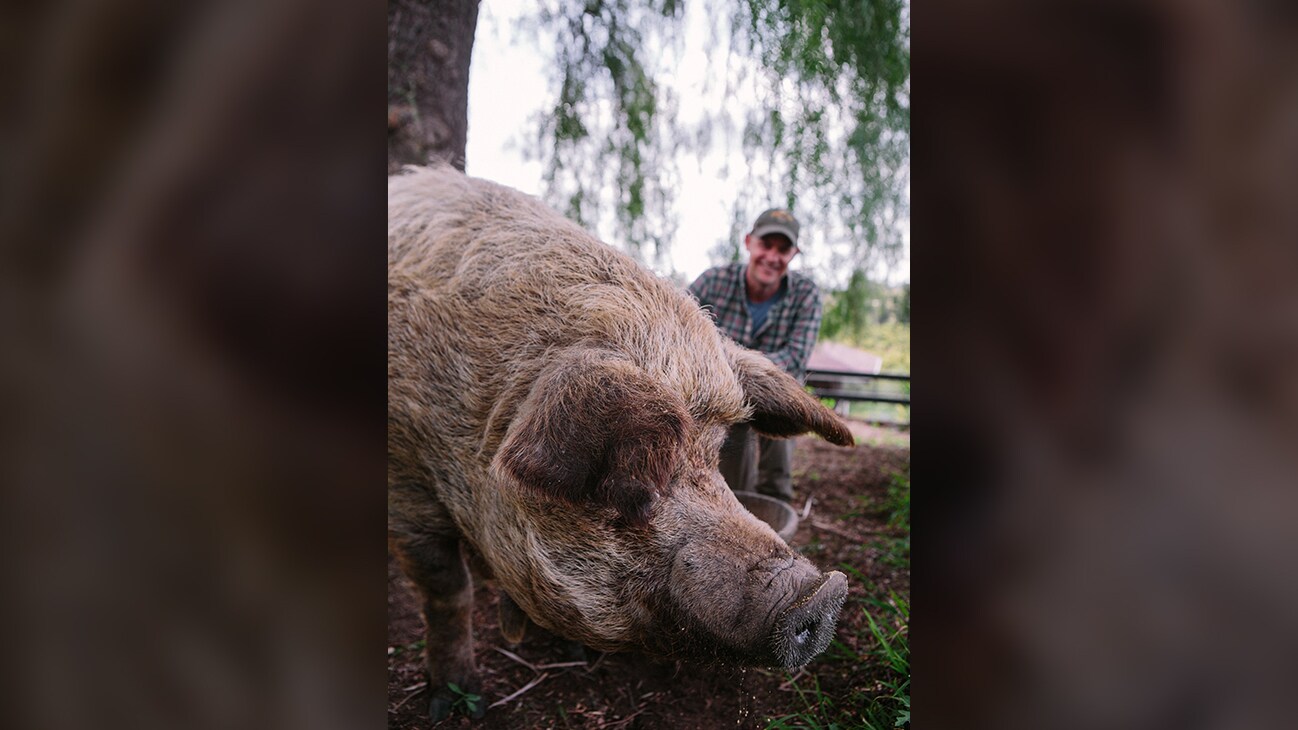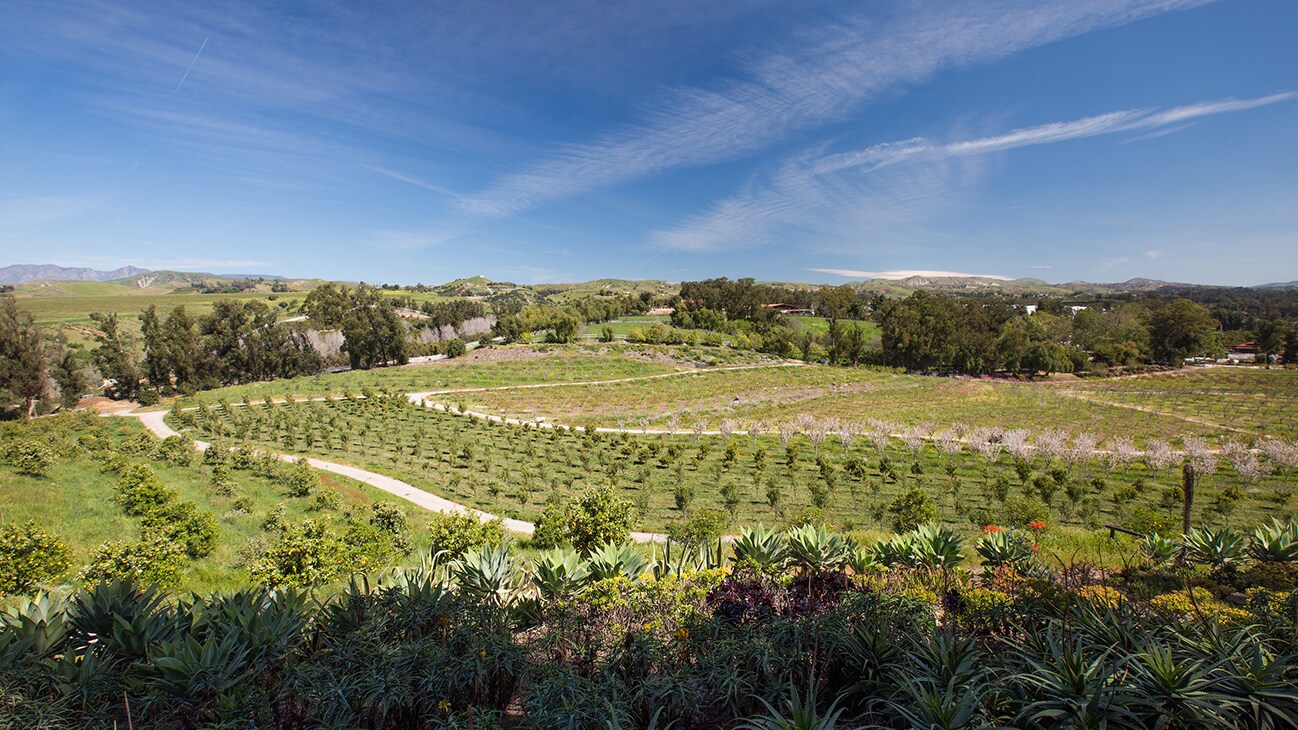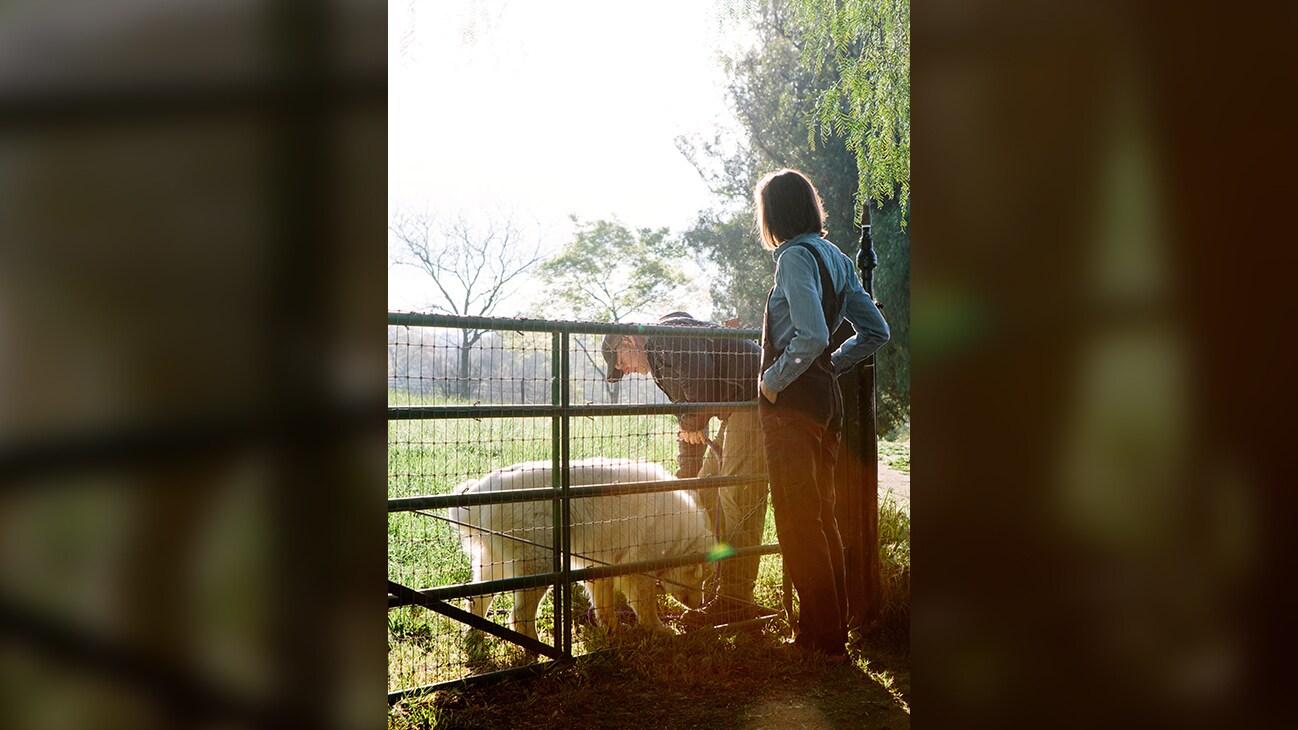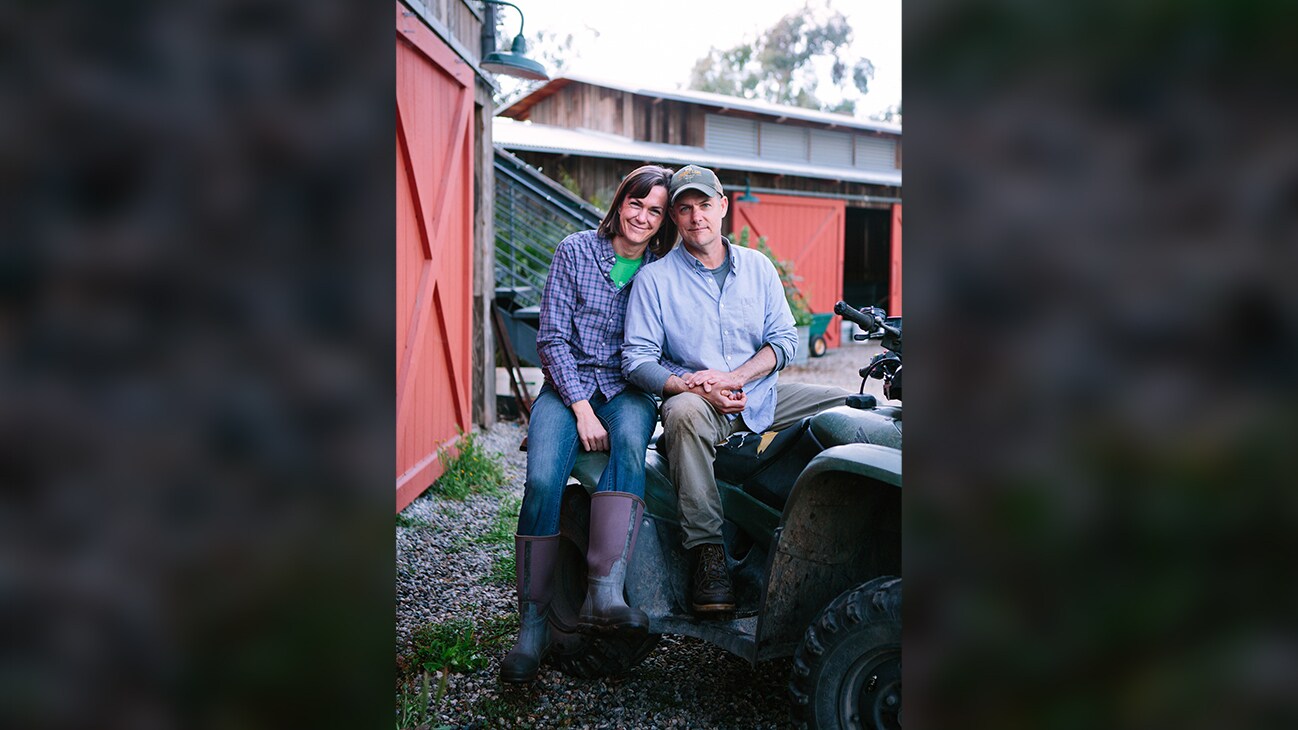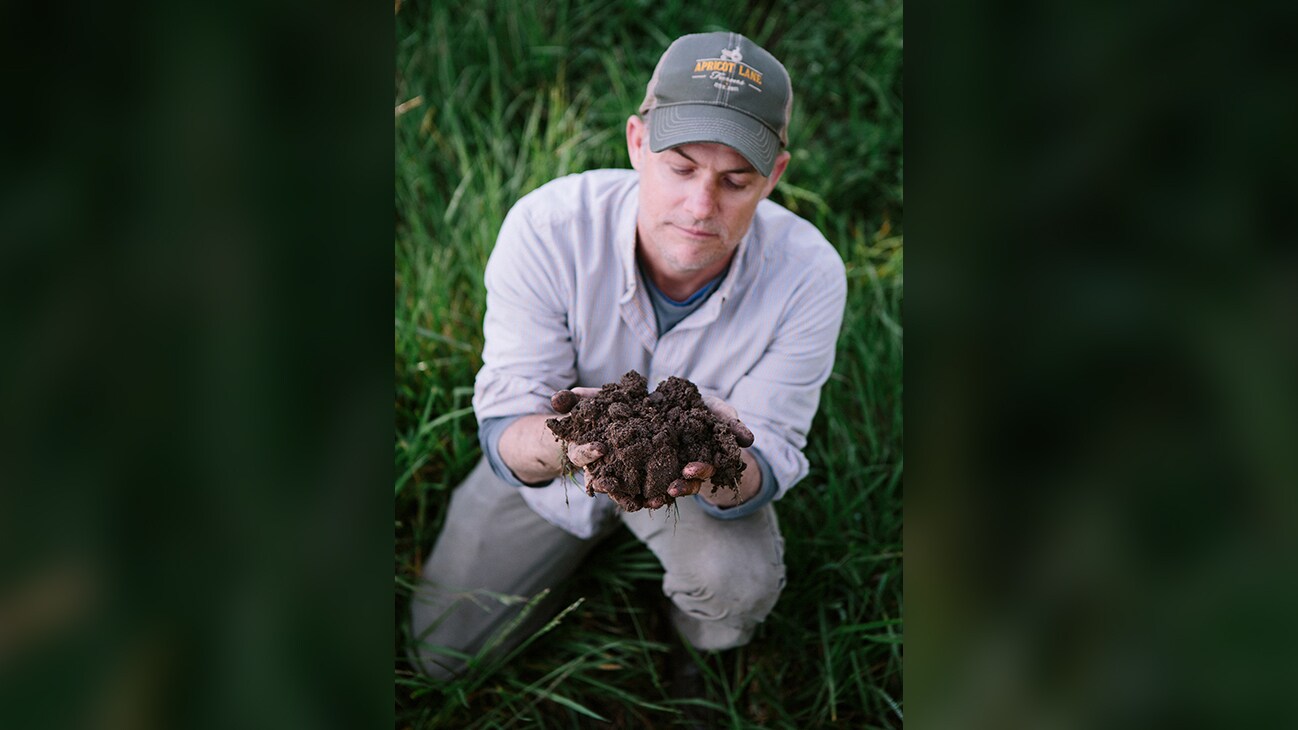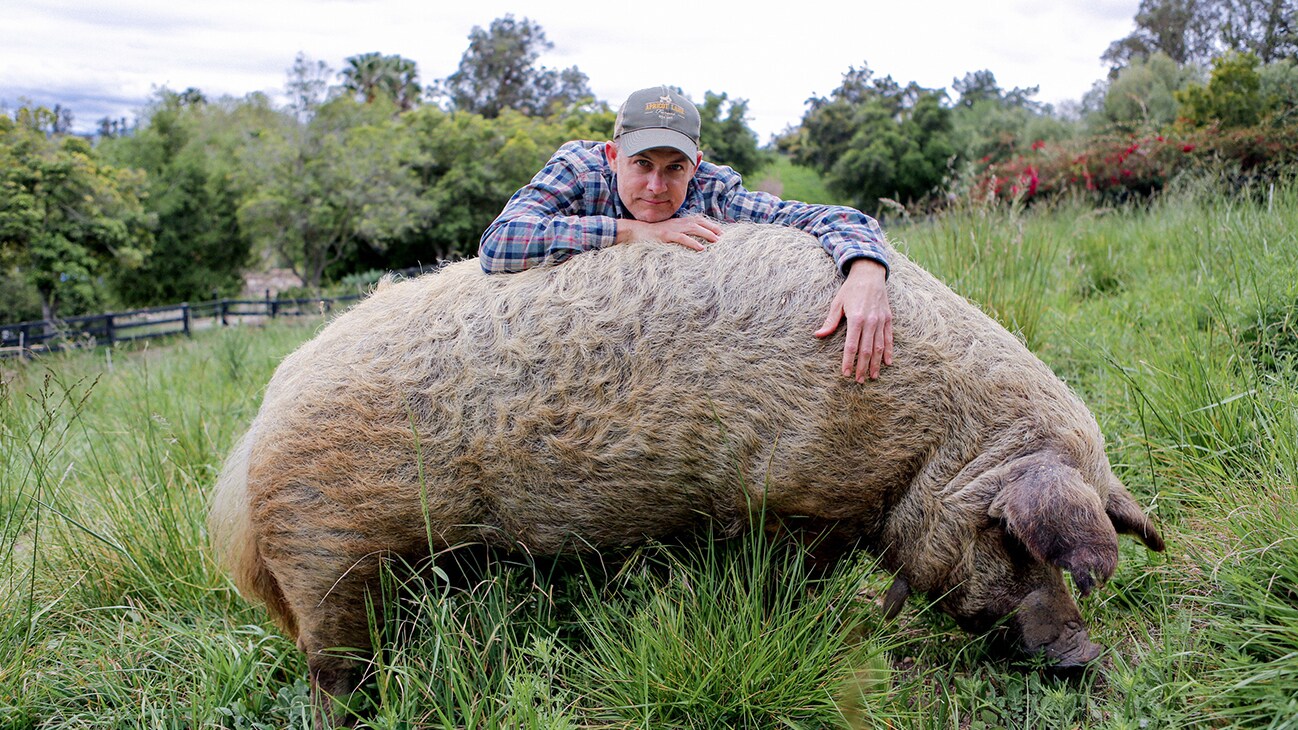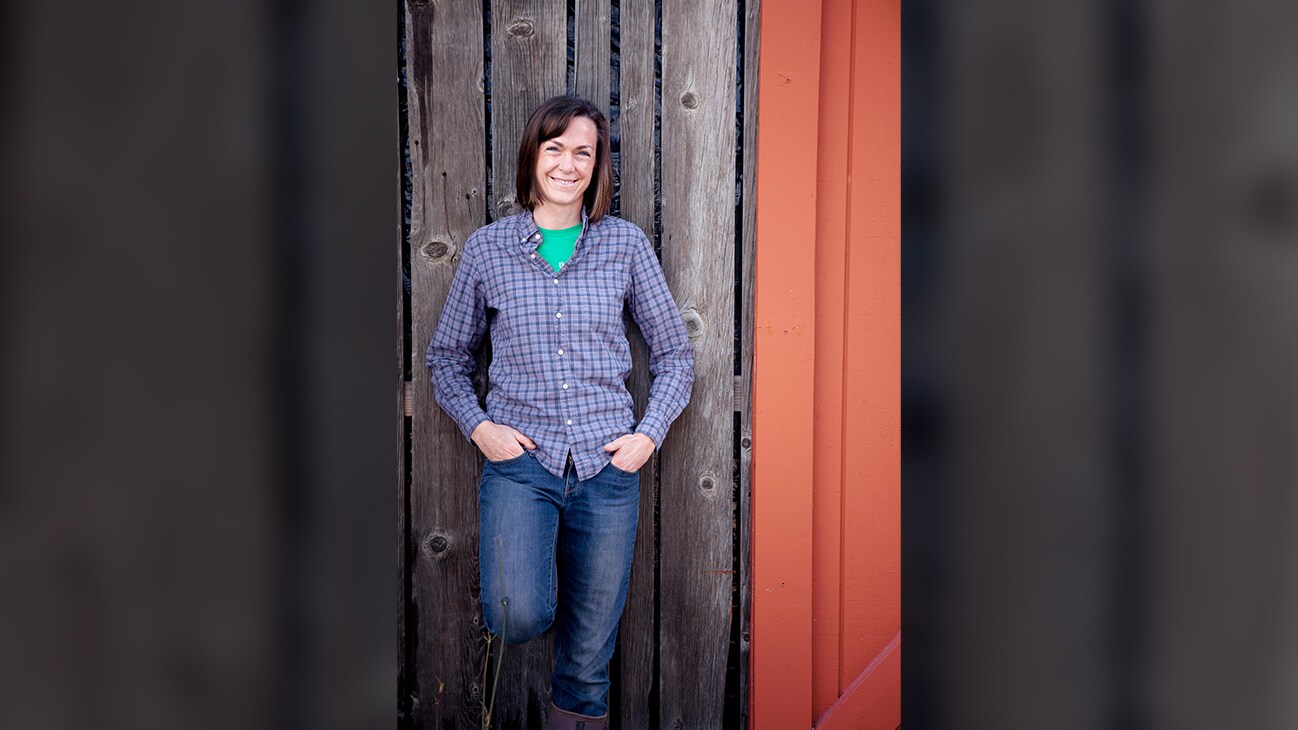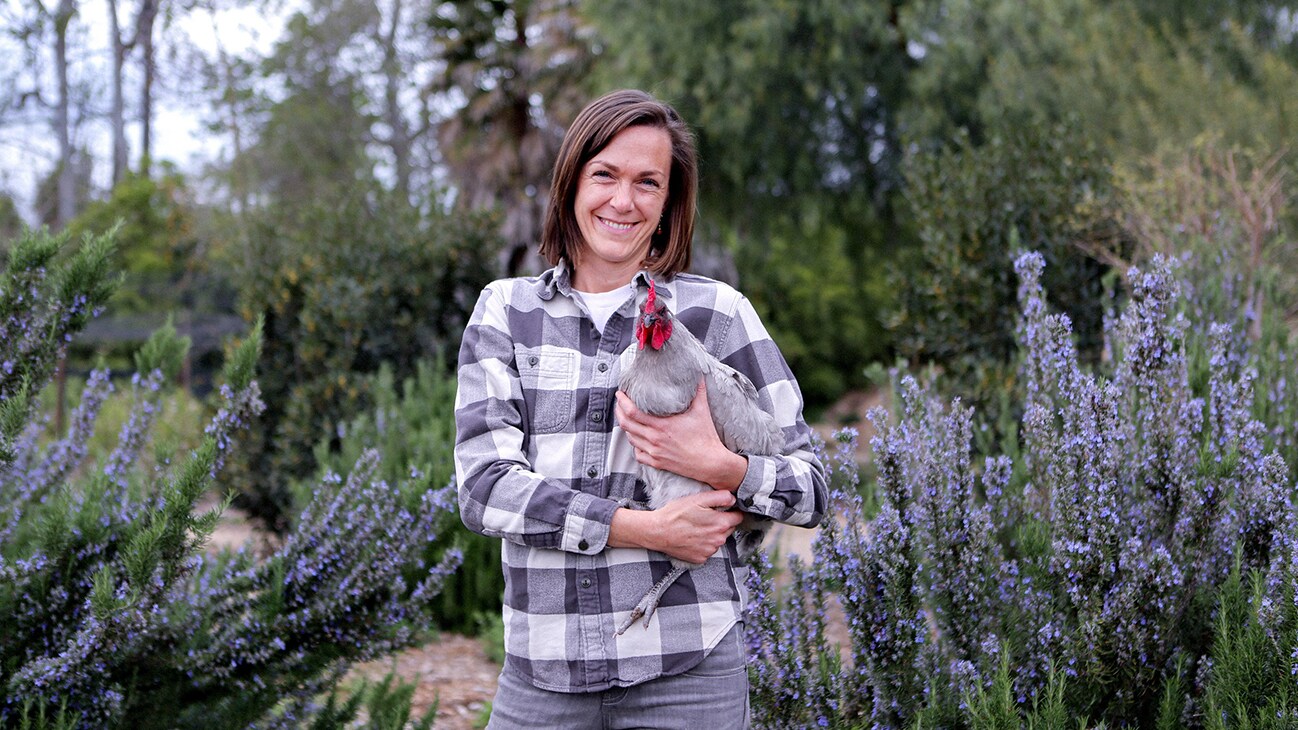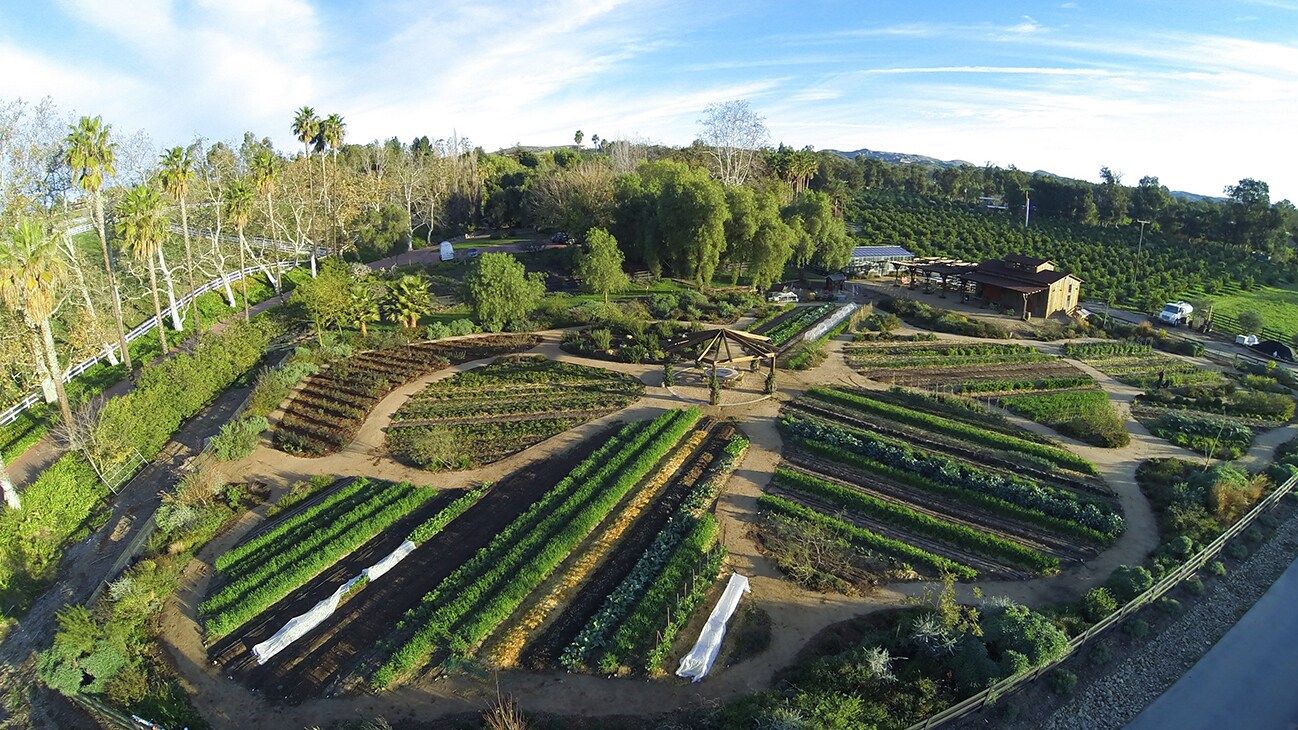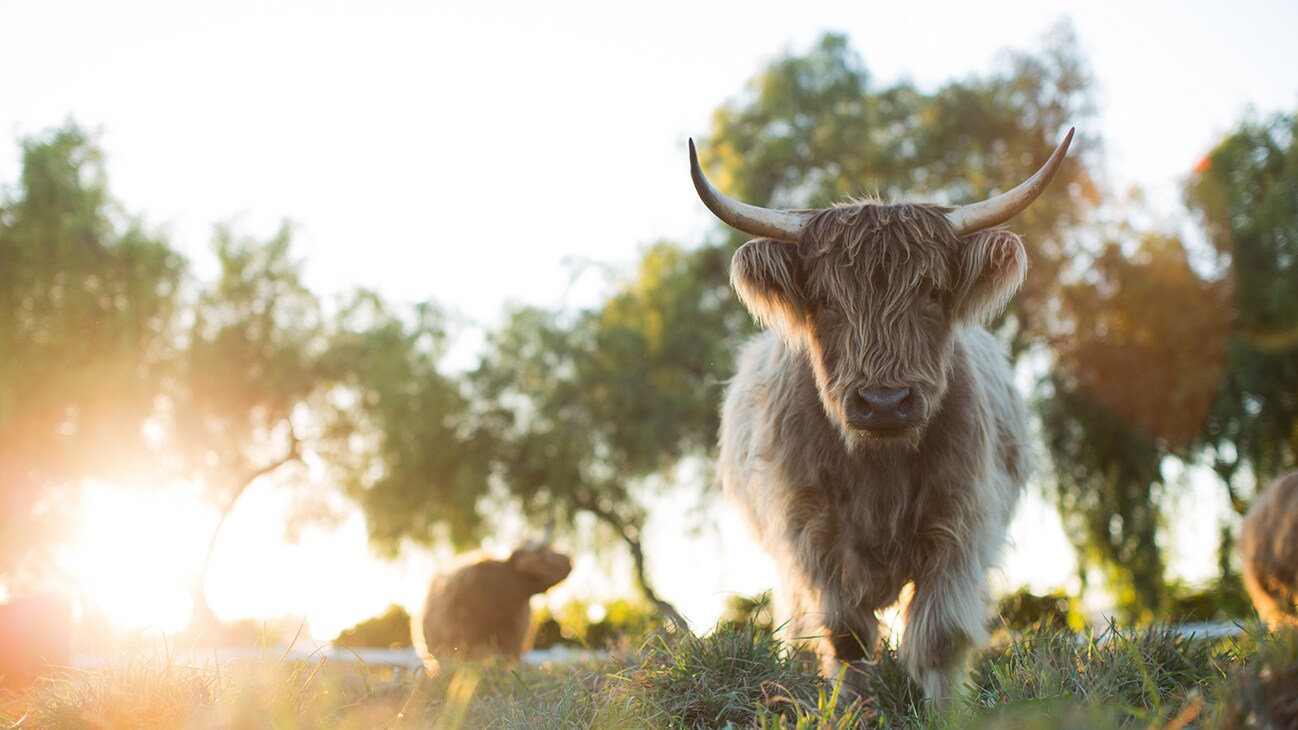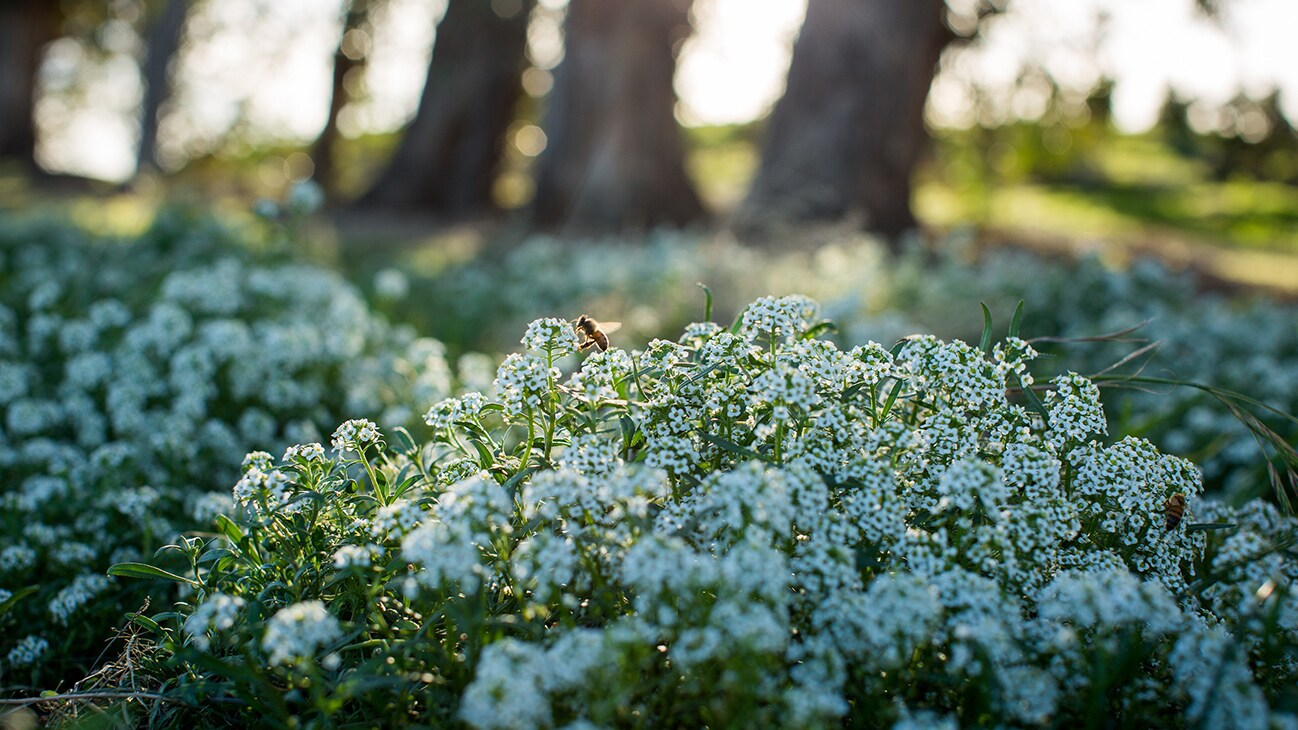The Biggest Little Farm: The Return
The Disney+ Earth Day special “The Biggest Little Farm: The Return,” from National Geographic, is based on the 2018 award-winning feature documentary film that tells the story of John and Molly Chester, who abandon their urban life in Los Angeles to live on a barren farm to grow delicious food in harmony with nature in Ventura County. The new special follows the farmers’ 10-year tireless journey as they transform the land into a magical working farm and document the whole process in this heartwarming special that is akin to a real-life “Charlotte’s Web.” Apricot Lane Farms is a beautiful, complex world that reflects our planet’s biodiversity, and this special introduces audiences to animals that will quickly burrow into their hearts, like Emma the pig who welcomes her newest litter and an adorable lamb named Moe who befriends the family. This Earth Day, see how the farmers utilize the interconnectedness of nature to help build soil health, maximize biodiversity, and regeneratively grow the most nutrient-dense food possible.
-
Directed By
John Chester
Mandarins are one of over 75 different fruit varieties growing in the most diverse orchard of Apricot Lane Farms, fondly known as "The Fruit Basket." Diversity of crops is critical to increasing the farm's immunity against pests and disease and building soil fertility. (Apricot Lane Farms)
ofMandarins are one of over 75 different fruit varieties growing in the most diverse orchard of Apricot Lane Farms, fondly known as "The Fruit Basket." Diversity of crops is critical to increasing the farm's immunity against pests and disease and building soil fertility. (Apricot Lane Farms)
ofAfter a year-long break from breeding, Emma, the matriarch pig of Apricot Lane Farms, will soon give birth to yet another litter of piglets. (Apricot Lane Farms/Yvette Roman)
ofAfter a year-long break from breeding, Emma, the matriarch pig of Apricot Lane Farms, will soon give birth to yet another litter of piglets. (Apricot Lane Farms/Yvette Roman)
ofThe orchards at Apricot Lane Farms contain a diversity of fruit trees, cover crops, and native plants, all part of the decade-long effort to revitalize once-barren farmland. (Apricot Lane Farms)
ofThe orchards at Apricot Lane Farms contain a diversity of fruit trees, cover crops, and native plants, all part of the decade-long effort to revitalize once-barren farmland. (Apricot Lane Farms)
ofApricot Lane Farms co-founders and farmers John and Molly Chester, rely on their guardian dogs to protect vulnerable livestock from predators such as coyotes. With the farm animals well protected, coyotes can instead help the farm by hunting the gophers that cause damage to the fruit trees. (Apricot Lane Farms/Yvette Roman)
ofApricot Lane Farms co-founders and farmers John and Molly Chester, rely on their guardian dogs to protect vulnerable livestock from predators such as coyotes. With the farm animals well protected, coyotes can instead help the farm by hunting the gophers that cause damage to the fruit trees. (Apricot Lane Farms/Yvette Roman)
ofFarmers Molly and John Chester, founders of Apricot Lane Farms, a large biodynamic farm in Southern California. (Apricot Lane Farms/Yvette Roman)
ofFarmers Molly and John Chester, founders of Apricot Lane Farms, a large biodynamic farm in Southern California. (Apricot Lane Farms/Yvette Roman)
ofJohn Chester, farmer and co-founder of Apricot Lane Farms, says a central focus at the farm over the last decade has been to regenerate the soil, the foundation of a healthy farm ecosystem. (Apricot Lane Farms/Yvette Roman)
ofJohn Chester, farmer and co-founder of Apricot Lane Farms, says a central focus at the farm over the last decade has been to regenerate the soil, the foundation of a healthy farm ecosystem. (Apricot Lane Farms/Yvette Roman)
ofJohn Chester, farmer and co-founder of Apricot Lane Farms, says their pig Emma has birthed a legendary number of piglets during her time at the farm. (Apricot Lane Farms/Yvette Roman)
ofJohn Chester, farmer and co-founder of Apricot Lane Farms, says their pig Emma has birthed a legendary number of piglets during her time at the farm. (Apricot Lane Farms/Yvette Roman)
ofMolly Chester co-founded Apricot Lane Farms with her husband John with the intention of rebuilding a healthy farm ecosystem on a deserted orchard in Southern California. (Apricot Lane Farms/Yvette Roman)
ofMolly Chester co-founded Apricot Lane Farms with her husband John with the intention of rebuilding a healthy farm ecosystem on a deserted orchard in Southern California. (Apricot Lane Farms/Yvette Roman)
ofMolly Chester co-founded Apricot Lane Farms with her husband John with the intention of rebuilding a healthy farm ecosystem on a neglected lemon farm in Southern California. (Apricot Lane Farms/Yvette Roman)
ofMolly Chester co-founded Apricot Lane Farms with her husband John with the intention of rebuilding a healthy farm ecosystem on a neglected lemon farm in Southern California. (Apricot Lane Farms/Yvette Roman)
ofThe market garden at Apricot Lane Farms contains over 100 fruit and vegetable varieties, as well as native plant habitats. The garden is also a certified wildlife habitat. (Apricot Lane Farms)
ofThe market garden at Apricot Lane Farms contains over 100 fruit and vegetable varieties, as well as native plant habitats. The garden is also a certified wildlife habitat. (Apricot Lane Farms)
ofOne of Apricot Lane Farms' Scottish Highland cows takes a break from grazing the pasture. Utilizing the technique of managed grazing, the Apricot Lane Farms cattle herd plays a critical role in building soil on the farm, mimicking the way buffalo moved across the Great Plains for centuries. (Apricot Lane Farms)
ofOne of Apricot Lane Farms' Scottish Highland cows takes a break from grazing the pasture. Utilizing the technique of managed grazing, the Apricot Lane Farms cattle herd plays a critical role in building soil on the farm, mimicking the way buffalo moved across the Great Plains for centuries. (Apricot Lane Farms)
ofSweet alyssum is one of the many wildflowers planted throughout the farm to attract bees and other pollinators that are critical to increasing biodiversity and building a healthy and resiliant farm ecosystem. (Apricot Lane Farms)
ofSweet alyssum is one of the many wildflowers planted throughout the farm to attract bees and other pollinators that are critical to increasing biodiversity and building a healthy and resiliant farm ecosystem. (Apricot Lane Farms)
of Disney.com
Disney.com
